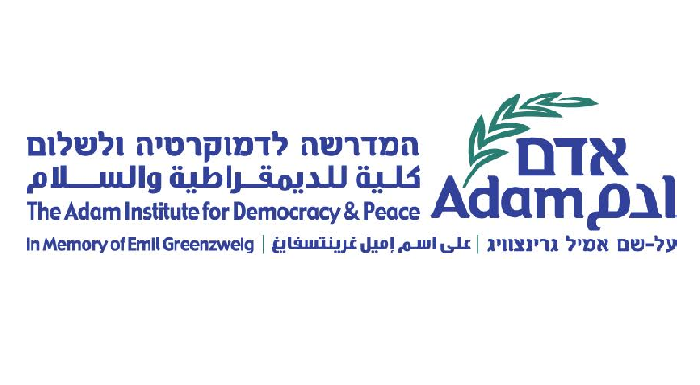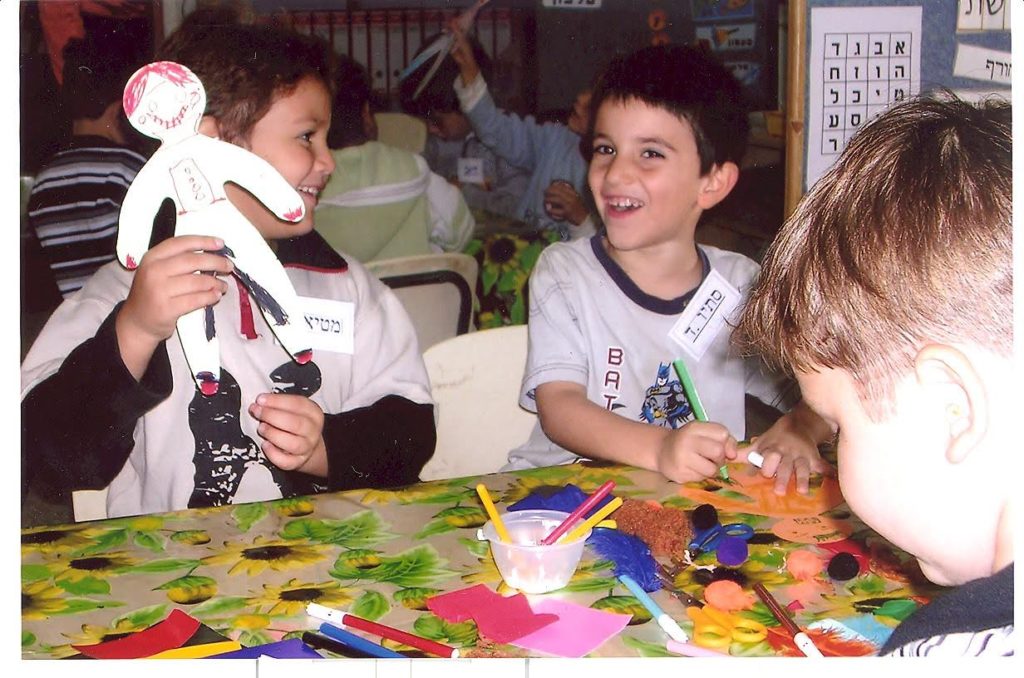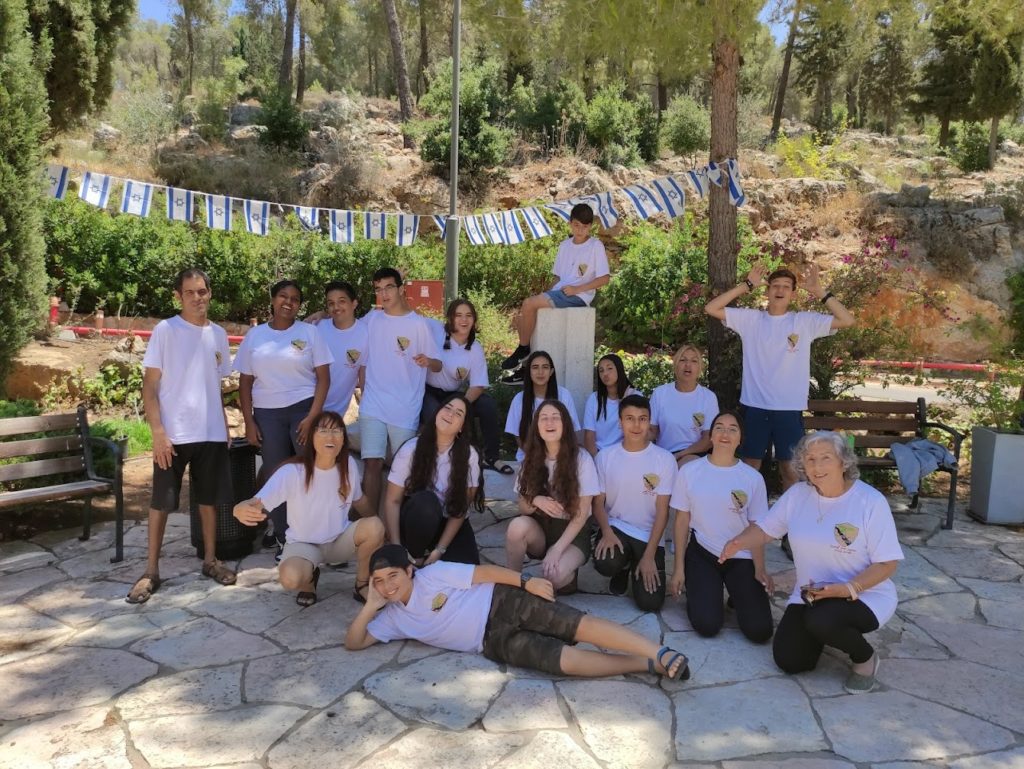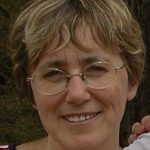
Dear All,
Many of you have reached out to check in and see how I’m doing, how we’re doing.
Thank you for your concern and caring. It means a great deal to me, to us.
In a sentence, we’re safe, yet heartbroken. We’re fine, but not okay.
Israeli society is enduring very difficult times since the brutal attack on the communities near the Gazan border and other cities throughout Israel. The level of cruelty carried out against children, elderly, young people and security personnel has left those of us who believe in human goodness amazed, pained and angry. We’re gravely concerned about the 230 hostages including babies, elderly and peace activists with whom we have had long-standing relations for many years. Our hearts are broken for the 1400 who were killed and the hundreds who were injured. The personal and collective trauma is great. For example, Kibbutz Be’eri has 107 residents killed or lost/kidnapped – that’s almost 10% of their inhabitants. That is proportional to New York City losing 800,000 people. (The numbers may have gone up – it’s so hard to keep track of it all.)
Some of you have asked about how you can help. What particular projects can you support to have an impact and foster wellbeing?
As many of you know, our nonprofit has been working in the field for more than thirty years, including extensive educational programs in southern Israel. In addition to general digital programming that we’re tailoring for students, teachers and parents nationally to address these especially challenging times, we’re focusing on two communities with whom we have a longstanding relationship and where we can have a valuable and direct impact.
1. TEEN LEADERS IN OFAKIM– We have a particularly warm, strong relationship with the Hosen Resilience Center’s Democratic Youth Leaders in Ofakim, a low-income city on the Gazan border. Ofakim suffered 50 casualties in this horrific war, and many residents were injured (Population 33,519).
The Democratic Youth Leadership group is an amazing cross-generational multi-ethnic group comprising Ashkenazim, Mizrachim, Ethiopian Israelis, neurotypical participants with an older participant with disabilities, different socioeconomic backgrounds and faith identities. We’ve run seminars on democratic principles, conflict resolution/mediation, and the connection between democracy and environment. It’s foundational work for teens who live in Israel’s geographic, economic and social periphery, disadvantaged in several realms. These acute disparities shape social status, income, access to education and social services. We wanted to equip young people with tools to bolster their education and afford them tools for social change. It’s been a great success.
Now we seek to give them a calm, peaceful place to heal. They love coming to the soothing pastoral Jerusalem Forest, where our offices are located. It’s near Yad Vashem, an ocean of greenery and quiescence. We’d like to raise money for a wellbeing seminar after the war that will allow them healing togetherness time in familiar surroundings. A one-night seminar including accommodations costs $5000. If we raise more, we can extend it to two nights or do a second seminar. If the spirit moves you, you can support these programs via this link or share with anyone else who’d like to do so.
Here’s a photo of the teens in the lovely forest during brighter days and more peaceful times.

I also want to share some video links that the teens prepared from previous seminars: this uplifting video preceded a seminar; this video captured the environmental seminar, and this link captured a previous seminar Ofakim.
2. BEDOUIN YOUNG LEADERSOur eyes and hearts are also with the Bedouin villages, recognized and unrecognized, in the Southern Negev desert, where we’ve run educational programming and have many colleagues and friends. The victims of the October 7th attack by Hamas include 19 members of the Negev Bedouin Arab community and 7 hostages. Many live below the poverty line, and about half live outdoors. They lack proper protective structures, and Bedouin children were also killed. Some 60 percent of the community is under 18.
In the past two years, the Adam Institute has run educational programs for the student leadership program of Desert Stars Institute, which brings together mission-driven young people to realize their individual and collective potential as change-making leaders. The programs are especially important because the economic, social and civic disparities are even more amplified among the Bedouin population, with its patriarchal tradition and complexity of its socio-demographic structure.
About 130 Bedouin young leaders were given democratic tools for social change, using „Betzavta- Adam Institute’s facilitation method„. For many, this was the first time to explore the right to equality, housing, civic rights, women’s rights, etc… They requested additional programs for this year, and we would like to accede that request. Here’s a photo from a previous seminar:

Learning happens through discovery – strengthening identity and granting legitimacy to all kinds of feelings/perspectives. Drawing on decades of experience, the Adam Institute is creating educational materials for students nationwide. That includes children.
3. CHILDREN’S LEARNING IN WARTIME: The Adam Institute’s programming for ages 5-8 comprises stories, songs, art and play to facilitate emotional expression, bolster a sense of belonging and validate difference in response to extreme situations. The program for ages 9-12, based on an experiential interactive exhibit, comprises games and educational tasks that teach discrimination, scapegoating, tolerance, diversity, and bullying. Participants learn equality, accepting difference, and the right to dignity; they’re encouraged to draw on personal experience. Both programs are suited to learning at home, in the classroom, or on Zoom.

Investing in youth is investing in our future. In the aforementioned examples, the youth leadership share lessons learned in Adam Institute seminars with peers in their programs, classrooms and communities, adding resonance and value. Children are given tools to process complicated events and their feelings in creative and constructive ways, with the support of their teachers and parents.
In times of war and distress, communal resilience provides a vital source of strength. We are a part of that right now. The young democratic leaders tell us that programs like ours helped foster solidarity and bolstes their ability to withstand extreme situations, like we’re facing today.
Initiating these projects is an attempt to do good for some young people who are going to need it. They’ve already told us as much. Helping children process these very trying times is also an overriding goal of ours.
Great educational responsibility rests on our shoulders. We’re committed to doing it. We’ll vigorously continue our work to promote Israeli democracy, shared living between Israeli Jews and Arab citizens of the state, and peace with the countries of the region.
It may sound lofty, but we know that there is no other way forward.
I won’t lie. These are painful and scary times.
We’d greatly welcome your partnership and support. This link takes you to our donation page, with various currency options available. Every sum will be allocated towards healing and building our future.
Please feel free to share this email with friends and individuals for whom our message might resonate. You may sign up for your mailing list via this link.
May we know better days.
In gratitude,
Uki
Executive Director
The Adam Institute for Democracy and Peaces
ukimaroshek@gmail.com/uki@adaminstitute.org.il

Uki Maroshek-Klarman Dyrektor wykonawczy The Adam Institute for Democracy and Peaces, a także jedna z jego założycieli. Stworzyła metodę „Betzavta – Adam Institute’s facilitation metod”. Poprzez nią dążyła do uczynienia edukacji demokratycznej dostępną dla wszystkich. Metoda angażuje poprzez doświadczalne nauczanie, jest ona głęboko zakorzeniona w filozofii, socjologii, psychologii społecznej jednocześnie dostarczając uczestnikom satysfakcji. Dr. Maroshek-Klarman opracowała również wiele programów z zakresu demokracji, edukacji obywatelskiej i pokoju. Dodatkowo jest autorką książek i artykułów oraz posiada doktorat z filozofii politycznej zdobyty na Uniwersytecie Tel Awiwu.
czytaj więcej
1 lutego 2019 roku weszła w życie Umowa o Wolnym Handlu między Unią Europejską a Japonią. Zwana jest FTA (Free Trade Agreement) lub EPA (Economic Partnership Agreement), a wśród jej założeń jest zacieśnienie partnerstwa gospodarczego między UE a Japonią. Ponieważ “postanowienia Umowy są wiążące dla państw członkowskich UE, w tym Polski, od dnia wejścia jej w życie” (Żołnacz-Okoń 2019), będzie miała duże znaczenie dla polskiej gospodarki, a także dla polsko-japońskiego bilansu handlowego.
Magdalena PająkRP: Rok 2024 może stać się okresem nowego otwarcia w relacjach Polski z Uzbekistanem
Już od marca br. pasażerowie PLL LOT będą mogli latać z Warszawy do Taszkentu - stolicy Uzbekistanu. Ułatwi to współpracę gospodarczą i turystykę.
Magdalena Sobańska-CwalinaDecyzją milionów Amerykanów Joe Biden z ramienia Partii Demokratycznej 20 stycznia 2021 r. zostanie zaprzysiężony na 46. prezydenta USA. Wraz z nim stery w zarządzaniu państwem przejmuje Kamala Harris.
Iga BielawskaOd pewnego już czasu administracja amerykańska podejmuje wysiłki na rzecz wzmacniania wielostronnej współpracy w dziedzinie bezpieczeństwa wśród swoich sojuszników na Indo-Pacyfiku.
Jakub WitczakWe’re Stronger Together – an Interview with Minister Marcin Przydacz
"Cooperation and investments – we are absolutely up for it. However, we prefer to keep a certain degree of caution when it comes to entrusting the transfer of technology and critical infrastructure to external investors. The security of Poland and the EU should be considered more important than even the greatest economic gains..."
Forbes: Jeśli Chiny pójdą na wojnę, czy Europa pozostanie neutralna?
Tajwan nie jest sprawą Europy i Stary Kontynent nie da się wciągnąć w żaden konflikt wokół wyspy. Tak opinia publiczna zrozumiała przesłanie wywiadu udzielonego przez prezydenta Emmanuela Macrona w przededniu jego wizyty w Chinach.
Paweł BehrendtAzjatech #232: Japońska technologia może zrewolucjonizować rolnictwo
Azjatech to cotygodniowy przegląd najważniejszych informacji o innowacjach i technologii w krajach Azji, tworzony przez zespół analityków Instytutu Boyma we współpracy z Polskim Towarzystwem Wspierania Przedsiębiorczości.
In the first part of this analysis of Ulaanbaatar’s winning 2040 General Development Plan Conception (GDPC) I look into the historical preconditions for the city’s planned development as well as present the legislative climate in which works on Ulaanbaatar’s future development strategies have recently found themselves.
Paweł SzczapTydzień w Azji #270: Wybory na tych małych wyspach mogą zaważyć na geopolityce całego regionu
Przegląd Tygodnia w Azji to zbiór najważniejszych informacji ze świata polityki i gospodarki państw azjatyckich mijającego tygodnia, tworzony przez analityków Instytutu Boyma we współpracy z Polskim Towarzystwem Wspierania Przedsiębiorczości.
Współpraca Instytutu Boyma z Forbes Polska
Analitycy Instytutu Boyma od niedawna mają przyjemność współpracować z redakcją polskiego wydania magazynu Forbes. Poniżej prezentujemy listę naszych artykułów.
Inicjatywy i programy o charakterze stricte proekologicznym, jakkolwiek przychylnie przyjęte przez rządy i środowiska naukowe republik Azji Centralnej, nie doczekały się wymiernych efektów w postaci rzeczywistego wpływu na procesy gospodarcze, zwłaszcza w kwestii gospodarowania zasobami...
Jerzy OlędzkiForbes: Najbogatszy Azjata zmienia swój biznes. Chce wejść do cyfrowej pierwszej ligi
Ta historia jest gotowym materiałem na filmową epopeję. Nie brakuje w niej sukcesu self-made mana, wielkiego talentu biznesowego braci i ich miłości, pozwalającej rozbudować rodzinną firmę w jeden z największych konglomeratów globu. A także późniejszej kłótni rodzeństwa i niszczącej konkurencji biznesowej.
Krzysztof ZalewskiTydzień w Azji #159: Bliscy sojusznicy USA milczą w sprawie Ukrainy
Przegląd Tygodnia w Azji to zbiór najważniejszych informacji ze świata polityki i gospodarki państw azjatyckich mijającego tygodnia, tworzony przez analityków Instytutu Boyma we współpracy z Polskim Towarzystwem Wspierania Przedsiębiorczości.
Azja Centralna: Kręta droga do regionalnej integracji
Celem opracowania jest przedstawienie aktualnego poziomu zintegrowania republik Azji Centralnej oraz dokonanie analizy kierunków i dynamiki tego procesu w przyszłości. W opracowaniu dokonano również identyfikacji czynników, które mogą wzmacniać procesy integracyjne lub je hamować, a także przedstawiono przyczyny i skutki integracji w odniesieniu do tego regionu.
Jerzy OlędzkiRosja ma nową generację systemów przenoszenia głowic nuklearnych, ale z punktu widzenia Kremla nie ma już odpowiedniej ich liczby. Bombowce, rakiety i okręty podwodne z czasów sowieckich muszą być wycofane już teraz lub w najbliższym czasie.
Krzysztof ZalewskiAzjatech #63: Google for India 2020, czyli 10 mld USD na rozwój gospodarki cyfrowej w Indiach
Azjatech to cotygodniowy przegląd najważniejszych informacji o innowacjach i technologii w krajach Azji, tworzony przez zespół analityków Instytutu Boyma we współpracy z Polskim Towarzystwem Wspierania Przedsiębiorczości.
Forbes: Nowoczesne mieszkanie po pandemii
Pandemia może spowodować zmianę trendu na rynku mieszkaniowym (...). Rightmove, brytyjski portal nieruchomości, odnotował znaczny wzrost liczby osób poszukujących domów położonych z dala od centrów miast, z większymi ogrodami i miejscem na domowe biuro.
Magdalena Sobańska-CwalinaZamierzonym efektem kursu jest podniesienie kompetencji z zakresu międzykulturowej analizy dzieł filozoficzno-politycznych.
Azjatech #149: Chińczycy oskarżają amerykańską agencję o ataki cybernetyczne
Azjatech to cotygodniowy przegląd najważniejszych informacji o innowacjach i technologii w krajach Azji, tworzony przez zespół analityków Instytutu Boyma we współpracy z Polskim Towarzystwem Wspierania Przedsiębiorczości.
Coronavirus and climate policies: long-term consequences of short-term initiatives
As large parts of the world are gradually becoming habituated to living in the shadow of the coronavirus pandemic, global attention has turned to restarting the economy. One of the most consequential impacts of these efforts will be that on our climate policies and environmental conditions.
Dawid JuraszekAzjatech #146: Fujitsu opracowuje technologię śledzenia kosmicznych odpadów
Azjatech to cotygodniowy przegląd najważniejszych informacji o innowacjach i technologii w krajach Azji, tworzony przez zespół analityków Instytutu Boyma we współpracy z Polskim Towarzystwem Wspierania Przedsiębiorczości.
RP: Ekspansja na rynku indyjskim. Jak polscy przedsiębiorcy mogą znaleźć wsparcie?
Każda firma działająca w Indiach powinna być świadoma wielu tamtejszych wyzwań, od uciążliwej administracji począwszy aż po przeciążoną infrastrukturę i utrudnioną logistykę.
Krzysztof ZalewskiDr Krzysztof Zalewski uczestnikiem Kigali Global Dialogue w Rwandzie
Krótka notatka i galeria zdjęć od przewodniczącego rady Fundacji Instytut Boyma, który przebywa w Rwandzie na konferencji "Kigali Global Dialogue".


